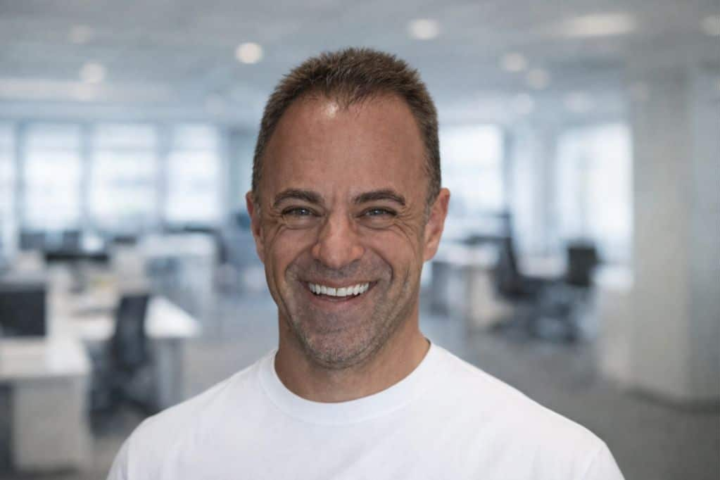Tal Melenboim is a serial entrepreneur who’s spent the past decade building and backing tech companies that solve real problems. He is the founder and chairman of several ventures including VFR.ai, a Connected TV (CTV) adtech company that raised $10 million at a $150 million valuation, and is integrated with over 150 content platforms globally.
StyleTech.ai, an AI-driven fashion solution, as well as innovative startups focused on advertising technologies, gaming, AI-powered solutions and more.
With multiple U.S. patents under his belt, Melenboim has never relied on a single industry. He looks for places where things don’t work as well as they should, where systems are slow, outdated, or out of touch with how people really behave.
That search has taken him through adtech, Connected TV (CTV) and other industries, where he built and sold multiple companies. Now it’s led him to one of the biggest challenges in technology today: the data that powers artificial intelligence.
His approach is simple: find the problems no one else is fixing, figure out what’s wrong, and build a solution that delivers. In the world of AI, he tells CEOWorld Magazine of a bigger issue taking shape.
Clean Data Will Decide the Winners in AI
With legal battles now surfacing around how large AI models are trained, such as the Anthropic case over pirated books and the Meta copyright ruling on Llama, Melenboim sees a shift underway. Companies are starting to realize that the data they rely on has to be not only high quality, but also licensed, accurate, and fully traceable. The question isn’t just how well a model performs; it’s whether the company can prove it had the right to train it in the first place.
As the Founder and CEO of Data+, a SaaS platform offering high quality and secure human datasets for AI training, Melenboim is betting that the winners in the AI space will be the ones who build on solid ground. That means doing the hard work of assembling clean, licensed datasets from the start.
Not scraping everything on the open web. Not guessing. Documenting every step of the way. It may not be flashy, but it’s what will stand up when everything else is under legal and technical pressure.
The internet wasn’t designed for AI. Now that models are trained on everything from YouTube transcripts to Wikipedia pages, the legal and technical gaps are starting to show. Lawsuits are piling up, from the Disney and Universal complaint against Midjourney to the New York Times’ ongoing case against OpenAI over the use of its articles in model training. Access to public data is shrinking. And the entire concept of “fair use” is being pushed to its limits.
“The quality of data really matters, and so does having the right to use it,” Melenboim says.
For him, this isn’t about doomsday predictions or quick fixes. It’s about the foundation. And he believes the next generation of AI will be shaped not just by the size of the models, but by the quality, accuracy, and licensing of the data they are built on.
Building Across Boundaries
Melenboim has never been too concerned with sticking to a single vertical. His companies have moved from connected TV to programmatic adtech to AI-driven data engines. Even fashion and gaming made their way into his portfolio. What connected them wasn’t the product, but the process.
“For me, it’s always about spotting problems that haven’t been solved well,” he says. “If I see a space where the system feels outdated or inefficient, that’s what draws me in.”
When he looked at CTV, it was clear to him that ad delivery hadn’t caught up to how people actually consumed content. Viewers were streaming across devices and platforms, but ad targeting was still playing catch-up.
In fashion, it was the broken forecasting process. Brands were stuck guessing what would sell. There was too much noise and not enough signal. And in AI, he found an even deeper issue: most of the data being used to train these powerful models was messy, unverified, and sometimes legally questionable.
“The common thread is just asking, ‘How can this work better?’ and building around that,” he says.
Scaling the Wrong Way
When founders think about going global, Melenboim sees a consistent blind spot. They assume it’s a language problem. They tweak the product, translate the copy, and expect traction. But in his experience, it rarely works that way.
“They treat international growth like it’s just a translation problem. It’s not,” he says. “Different regions have different customer behavior, expectations, and regulations. You can’t just copy and paste what worked in your home market.”
What works in one country can completely fall apart in another. It’s not just the words; it’s pricing psychology, cultural norms, support expectations, and even how the product is introduced.
“Some founders rush in without really understanding the ground reality, and that ends up being expensive. Slowing down to listen and adapt actually helps you grow faster in the long run,” he says.
Knowing When to Walk Away
For someone who has built multiple companies and exited more than once, Melenboim is clear-eyed about timing. There’s rarely a single moment when it’s obvious. Instead, it comes down to a few key signals: strong market activity, a solid business position, and clarity on what comes next.
“If the market is active, your company’s in a strong position, and you already have a clear idea of what you’d like to do next, that’s usually a good time to think seriously about selling,” he says.
He avoids the trap of chasing the peak. Holding out too long, waiting for a perfect exit, often means missing the best one. “The best exits I’ve done came when the business still had momentum, but selling opened up more opportunities than holding on.”
What Data+ Gets Right
At Data+, the focus from day one has been on building legally sound, high-quality datasets. For years, companies scraped the web with little regard for ownership or accuracy. Now, that free-for-all is catching up with them.
The lawsuits are about more than just copyright; they are also about control. And Melenboim believes the companies that own structured, licensed, and documented datasets will have a lasting advantage.
“It’s been coming for a while,” he says. “For years, companies trained their models on anything they could find, without thinking much about where the data came from or whether it was even accurate. But now the cracks are showing.”
The internet is still a massive data resource, but it’s becoming less usable by the day. Between legal risk, duplication, poor formatting, and bias, public web data often creates more problems than it solves.
“That’s where things are headed. Better data leads to better outcomes, and you need to be able to stand behind the data your models are built on,” he says.
While most of the attention is still on the models, Melenboim believes it’s the data going in, not the design, that determines whether AI is solid or fragile.
“You can’t build something solid on bad inputs.”
The Mistake He Wouldn’t Make Again
In his earlier ventures, Melenboim believed that holding on to control was the key to success. Solve the problems yourself, make the calls yourself, and move faster than everyone else. But with experience, that mindset changed.
“In the early days, I believed I could solve everything on my own and that it was even better to keep full control,” he says. “Today I understand that bringing in the right people early on, even if it means giving up some control or equity, shortens the process and significantly increases the chances of success.”
He no longer views equity dilution as a loss. He sees it as an investment in speed and survival. “Investing in building a strong team from day one is one of the most important lessons I have learned.”
The Unseen Side of Startup Life
Ask most people what a founder does all day, and the answers usually involve big-picture strategy, high-stakes meetings, and pitch decks. But Melenboim says the reality is much more hands-on.
“Most people think the life of a founder is all about meetings, investments, and strategic decisions,” he says. “In reality, a large part of my day is spent solving what seem like small problems, from helping the team deal with a technical bug to reviewing the wording of a proposal.”
He’s still in the weeds, even after years of building and exiting companies. And it’s that attention to detail, he believes, that separates companies that last from those that don’t.
Outside of work, he keeps his personal routine structured. He wakes up early, exercises regularly, and spends time with his family. That structure keeps him grounded. “Because without them, business success does not mean much.”**









